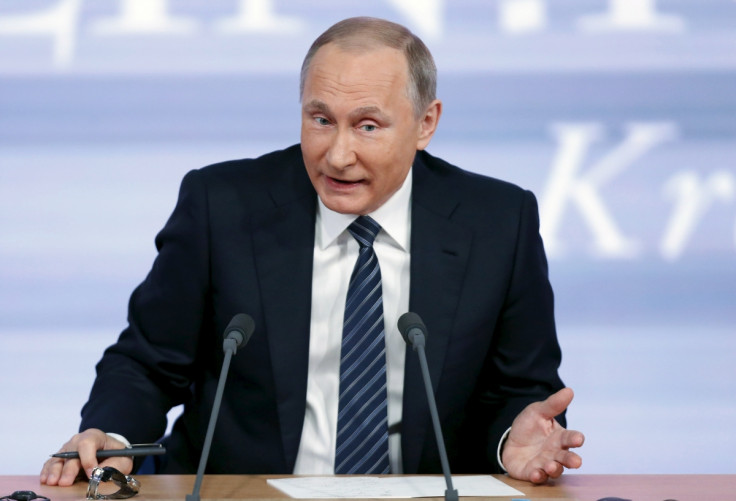Litvinenko inquiry: How conclusion into poisoned spy's death could affect war against Isis

British Prime Minister David Cameron is under pressure to launch a "serious reaction" against Russia if an independent inquiry into the death of poisoned spy Alexander Litvinenko 10 years ago finds the Kremlin was responsible for his murder.
However, senior diplomats at the Foreign Office are urging Cameron not to further strain relationships between Britain and Russia by imposing sanctions if that is the result when Sir Robert Owen delivers his conclusion on 21 January because a strong relationship is need between the two countries in the ongoing battle against the Islamic State (Isis/Daesh).
The former Russian secret service agent died after being poisoned with highly radioactive Polonium-210 in London in November 2006. It is alleged that the 43-year-old's tea had been laced with polonium by two former Russian colleagues, Andrei Lugovoi and Dmitry Kovtun, when they met at the Millennium Hotel in Mayfair. Both men deny the allegations against them.
The British government is expecting Owen will find both Lugovi and Kovtun responsible for his death and may even go one step further and rule the Russian state ordered the spy to be killed in London. Owen has previously said there is British government evidence which establishes a "prima facie" case showing the Kremlin is responsible for Litvinenko's death.

Senior British diplomats at the Foreign Office believe the inquiry will argue that state responsibility is not the same as President Vladmir Putin personally ordering the killing, reported the Guardian. However, Litvinenko's death, which Owen described as raising issues of the "uttermost gravity", has already strained relationships between the two countries as a result of Russia's refusal to extradite main suspects Lugovi and Kovtun to give evidence in the inquiry.
It is reported Cameron is being urged not to further strain relationships in the wake of the conclusion of the inquiry by imposing sanctions against Russian officials, including Putin, as a strong relationship between the two countries is needed to help in the ongoing battle against the Islamic State (Isis/Daesh). Britain is also one of a number of countries which is urging Russia to drop its alliance with Syrian president Bashar al-Assad as part of plans to end the current civil war in the country.
Marina Litvinenko, widow of the Russian spy, is one of those calling for sanctions against those responsible for his death, as well as Putin if he continues to refuse to extradite the two main suspects.
She told the Daily Telegraph: "When talking about sanctions we are talking about a very serious moment because Russia is already under sanctions and it is just the ordinary people who suffer. These people [senior state figures] definitely need to be under these sanctions. They still survive. They are able to travel. I think there should be a very serious discussion about what kind of sanctions and against whom."

Lib Dem leader Tim Farron is also calling for Cameron to subject those responsible for Litvinenko's death to a ban on travelling to the UK and to be excluded from the UK banking system. He said: "By poisoning one of their own on British soil, the Russian government completely disregarded the rule of law both within the UK and internationally."
Richard Horwell, the lawyer acting for Metropolitan Police, described the poisoning of Litvinenko as "a nuclear attack on the streets" of London. The inquiry into Litvinenko's death opened nearly a year ago. As of November 2015, it has cost £2.2m ($3.1m).
© Copyright IBTimes 2025. All rights reserved.






















